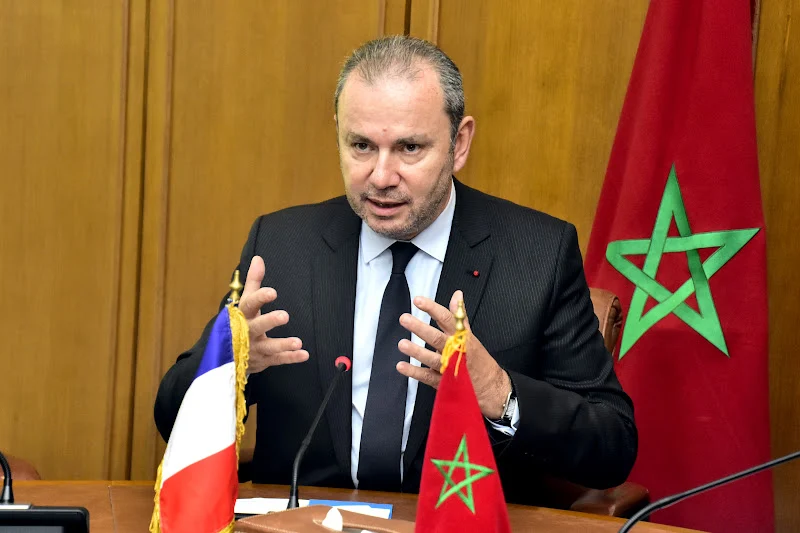France wants to be a partner in the development of Morocco’s Western Sahara for the benefit of local populations aspiring to a brighter future under the leadership of King Mohammed VI, said Christophe Lecourtier, France’s Ambassador to Morocco.
In an interview with MAP on the eve of the Morocco-France Economic Forum to be held in Dakhla, Lecourtier pointed to the immense economic potential of the southern provinces, benefiting both from their assets in renewable energy and their geographical position that predisposes them to become a true hub for the Sahel and West Africa.
“This is a vision carried by His Majesty King Mohammed VI. We share it and want to actively contribute to this development for the benefit of the populations who aspire to a brighter future. We want to be partners in this future,” he stated.
The French diplomat also noted that Morocco’s southern provinces represent a new horizon for France’s multidimensional cooperation with the North African country.
He cited, in this regard, the opening of new French schools in the region, a future cultural center, a visa application processing center, and the extension of the French Development Agency’s (AFD) scope to cover these provinces.
Southern Morocco stands at the heart of opportunity.
In this context, Lecourtier said the decision to hold the Morocco-France Economic Forum in Dakhla – an initiative of the General Confederation of Moroccan Enterprises (CGEM) and MEDEF International through the France-Morocco Business Leaders Club, attended by business figures from both countries – sends a “very clear” message.
This event, he explained, which traditionally took place in Rabat or Casablanca, can now also be hosted in Dakhla.
He added: “During this Forum, held under the theme ‘Southern Regions of Morocco: Toward New Perspectives for Morocco-France Economic Partnership Development’, we will discuss all these fantastic opportunities that Dakhla and the surrounding regions offer.”
“We will also bring them to fruition within the broader framework of the Kingdom’s development,” Lecourtier continued, underlining the wide range of opportunities that Morocco today offers both its population and its partners, with France at the forefront.
The ambassador further noted that Morocco plays an integral role in the value chains of industries that are crucial for France, particularly the automotive and aeronautics sectors.
He added that Morocco is fully involved in the development of French industry, with the share of value added generated in the country continuing to rise. “Our competitiveness is now linked,” he said.
He also pointed out that the trade balance between Rabat and Paris is stable “because we are operating within a logic of creating value in Morocco for the Moroccan market, but also for re-exporting to Europe.”
“Our goal is to further expand the range of companies cooperating across our two shores, not only in trade but also in establishment, transfer of know-how, and co-located development,” he explained.
Around 1,000 French companies currently have subsidiaries in Morocco, Lecourtier added, noting that French SMEs that sometimes face difficulties expanding in European markets would benefit from setting up in Morocco, given the country’s sustained development and its role as a gateway to sub-Saharan Africa.
Since more than two-thirds of economic, trade, and human exchanges occur between Morocco and Europe, Lecourtier called for a “more advanced” partnership, stressing that all partners, with Morocco foremost among them, stand to gain.
MWN with MAP
